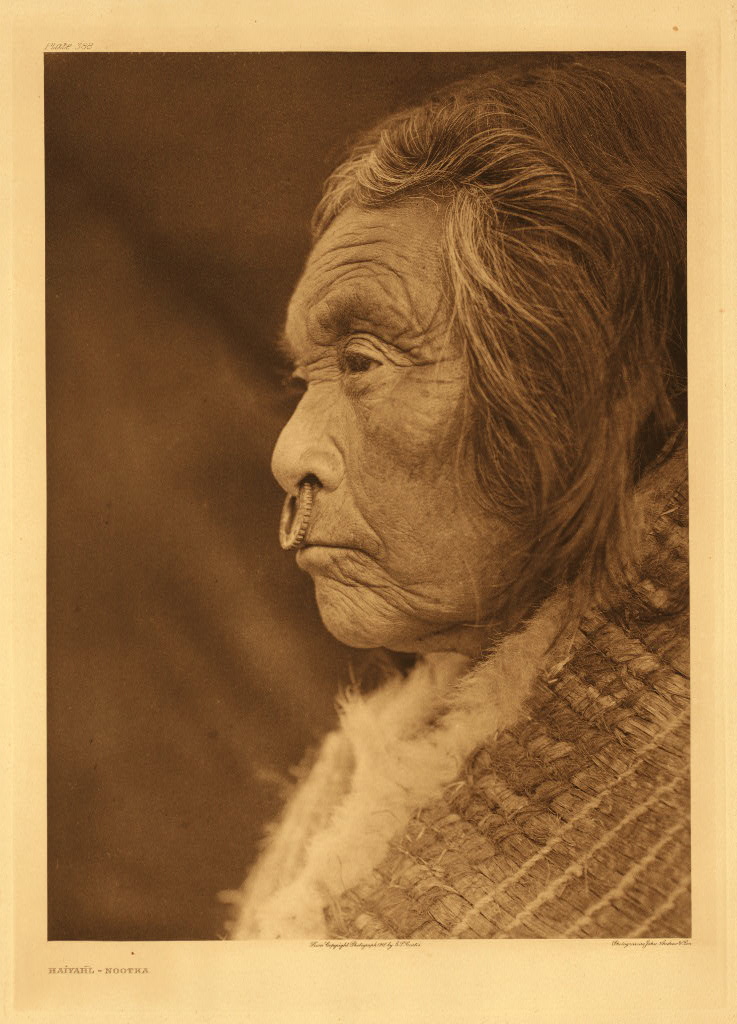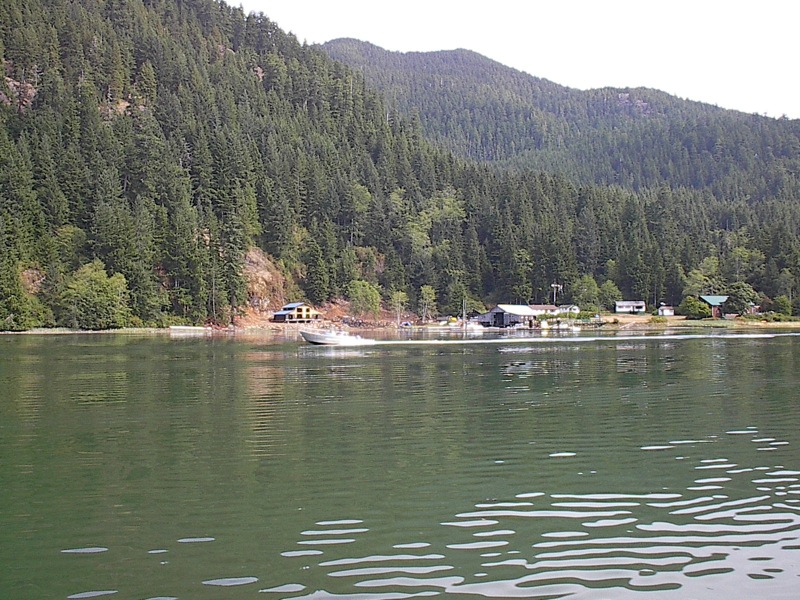Browse "Communities & Sociology"
-
Article
Nine Hour Movement
The Nine Hour Movement was an international phenomenon, taking place in Canada between January and June 1872. The movement’s goal was to standardize shorter working days. Though this particular mandate was unsuccessful, the movement did have an impact, including setting the foundation for the Canadian Labor Union.
"https://d2ttikhf7xbzbs.cloudfront.net/media/media/74917b1f-8a36-49c3-99fd-4cf328a0bfa3.jpg" // resources/views/front/categories/view.blade.php
https://d2ttikhf7xbzbs.cloudfront.net/media/media/74917b1f-8a36-49c3-99fd-4cf328a0bfa3.jpg
-
Article
Nipissing (Nbisiing) First Nation
Nipissing (also Nbisiing) First Nation people are of Algonquin and Ojibwe descent. (See also Anishinaabe and Algonquian.) The First Nation is made up of several communities along the north shore of Lake Nipissing. Their motto is an affirmation for protection of A-Kii (land), Bemaadzijik (people) and E-Niigaanwang (future). Nipissing First Nation was the first Anishinaabe nation in Ontario to ratify their own constitution in 2014. The population of Nipissing First Nation, as of November 2020, is 2,909. Two-thirds of the population reside off-reserve, while 916 live on-reserve.
"https://d2ttikhf7xbzbs.cloudfront.net/NipissingFirstNation/NFNGardenVillage.jpg" // resources/views/front/categories/view.blade.php
https://d2ttikhf7xbzbs.cloudfront.net/NipissingFirstNation/NFNGardenVillage.jpg
-
Article
Nisga'a
The Nisga’a are the original occupants of the Nass River Valley of Northwestern British Columbia. As of 2021, 1,794 Nisga’a continue to live on traditional lands in this area. In the 2021 Census, 4,890 people identified as Nisga’a. Granted self-government in a landmark case in 2000, the Nisga’a Lisims Government now governs the Nisga’a nation.
"https://d2ttikhf7xbzbs.cloudfront.net/media/media/6c6fbfac-3c49-4d28-afd9-afbac5a5d336.jpg" // resources/views/front/categories/view.blade.php
https://d2ttikhf7xbzbs.cloudfront.net/media/media/6c6fbfac-3c49-4d28-afd9-afbac5a5d336.jpg
-
Macleans
Nisga'a Land Treaty
This article was originally published in Maclean’s magazine on July 27, 1998. Partner content is not updated. A mere 111 years after a group of northwestern B.C. natives first asked Ottawa and Victoria for a treaty confirming their title to hundreds of square kilometres of the remote and lovely Nass River valley, their descendants may finally be on the verge of satisfaction.
"https://development.thecanadianencyclopedia.ca/images/tce_placeholder.jpg?v=e9dca980c9bdb3aa11e832e7ea94f5d9" // resources/views/front/categories/view.blade.php
https://development.thecanadianencyclopedia.ca/images/tce_placeholder.jpg?v=e9dca980c9bdb3aa11e832e7ea94f5d9
-
Article
Niska Archaeological Site
The Niska site (Borden No. DkNu-3) covers an area of 64 ha in southwestern Saskatchewan, east of the town of Ponteix.
"https://d2ttikhf7xbzbs.cloudfront.net/media/media/4643ad16-739c-485e-a87f-b6bbfb5dc881.jpg" // resources/views/front/categories/view.blade.php
https://d2ttikhf7xbzbs.cloudfront.net/media/media/4643ad16-739c-485e-a87f-b6bbfb5dc881.jpg
-
Article
Nuu-chah-nulth (Nootka)
Nuu-chah-nulth (Nootka) are Indigenous peoples of the Pacific Northwest Coast in Canada. When Captain James Cook encountered Nuu-chah-nulth villagers at Yuquot (Nootka Island, west of Vancouver Island) in 1778, he misunderstood the name for their nation to be Nootka, the term historically used to describe the Nuu-chah-nulth. The inlet where Cook first encountered the Nuu-chah-nulth is now known as Nootka Sound. In 1978, the Nuu-chah-nulth chose the collective term Nuu-chah-nulth (nuučaan̓uł, meaning “all along the mountains and sea”) to describe the First Nations of western Vancouver Island. In the 2016 census, 4,310 people identified as having Nuu-chah-nulth ancestry, 380 people reported the Nuu-chah-nulth language as their mother tongue.
"https://d2ttikhf7xbzbs.cloudfront.net/media/media/5c1e83c0-b312-4b79-a6ec-6f45c2a40e2b.jpg" // resources/views/front/categories/view.blade.php
https://d2ttikhf7xbzbs.cloudfront.net/media/media/5c1e83c0-b312-4b79-a6ec-6f45c2a40e2b.jpg
-
Article
Norman McLeod
Norman McLeod, Presbyterian minister (b at Point of Stoer, Scot 29 Sept 1780; d at Waipu, NZ 14 Mar 1866). McLeod, a teacher and lay preacher, moved to Pictou, Nova Scotia, in 1817.
"https://development.thecanadianencyclopedia.ca/images/tce_placeholder.jpg?v=e9dca980c9bdb3aa11e832e7ea94f5d9" // resources/views/front/categories/view.blade.php
https://development.thecanadianencyclopedia.ca/images/tce_placeholder.jpg?v=e9dca980c9bdb3aa11e832e7ea94f5d9
-
Article
North-West Resistance
The North-West Resistance (or North-West Rebellion) was a violent, five-month insurgency against the Canadian government, fought mainly by Métis and their First Nations allies in what is now Saskatchewan and Alberta. It was caused by rising fear and insecurity among the Métis and First Nations peoples as well as the white settlers of the rapidly changing West. A series of battles and other outbreaks of violence in 1885 left hundreds of people dead, but the resisters were eventually defeated by federal troops. The result was the permanent enforcement of Canadian law in the West, the subjugation of Plains Indigenous Peoples in Canada, and the conviction and hanging of Louis Riel.
"https://d2ttikhf7xbzbs.cloudfront.net/media/media/44b2bd9e-c62a-4a72-b6a8-029e1173ce70.jpg" // resources/views/front/categories/view.blade.php
https://d2ttikhf7xbzbs.cloudfront.net/media/media/44b2bd9e-c62a-4a72-b6a8-029e1173ce70.jpg
-
Article
North-West Schools Question
The North-West Schools Question was a conflict between church and state for control of education in the North-West Territories (now Saskatchewan and Alberta) in the late-19th century. The controversy was similar to other educational crises across Canada, and reflected the larger national debate about the future of Canada as a bilingual and bicultural country.
"https://d2ttikhf7xbzbs.cloudfront.net/media/media/6d628c6c-859f-462a-86bb-e96af37cefad.jpg" // resources/views/front/categories/view.blade.php
https://d2ttikhf7xbzbs.cloudfront.net/media/media/6d628c6c-859f-462a-86bb-e96af37cefad.jpg
-
Article
Northern Youth Abroad
Northern Youth Abroad is a registered not-for-profit charity. Since 1998, it has provided education and travel opportunities for over 550 young people, aged 15 to 22, from every community in Nunavut and the Northwest Territories. The programs are designed to foster cross-cultural awareness and global citizenship, while building the self-confidence and self-esteem necessary to help develop life and career goals.
"https://d2ttikhf7xbzbs.cloudfront.net/NorthernYouthAbroad/14496009746_0e4e140273.jpg" // resources/views/front/categories/view.blade.php
https://d2ttikhf7xbzbs.cloudfront.net/NorthernYouthAbroad/14496009746_0e4e140273.jpg
-
Article
Norwegian Music in Canada
It is believed that the Norse (Vikings) visited North America around the year 1000. However, people from modern Norway, the western kingdom of the Scandinavian peninsula, immigrated to Canada from the USA during the 1890s and moved into the Prairies and particularly to British Columbia, whose coastline so closely resembled that of their homeland. In 1986 there were 243,675 people of Norwegian origin living in Canada (191,000 in British Columbia, Alberta, and Saskatchewan). Those born in Canada numbered 224,000, and of the 20,000 immigrants 2,000 arrived in the period 1977-86.
"https://development.thecanadianencyclopedia.ca/images/tce_placeholder.jpg?v=e9dca980c9bdb3aa11e832e7ea94f5d9" // resources/views/front/categories/view.blade.php
https://development.thecanadianencyclopedia.ca/images/tce_placeholder.jpg?v=e9dca980c9bdb3aa11e832e7ea94f5d9
-
Article
Norwegian Canadians
Norway is a Scandinavian country in northwestern Europe. It is bordered by Sweden, Finland and Russia. Permanent Norwegian migration to North America began in 1825 when the first shipload of Norwegians arrived in New York. In 2016, the Canadian census reported 463,275 people of Norwegian origin (35,905 single and 427,370 multiple responses).
"https://d2ttikhf7xbzbs.cloudfront.net/media/media/19f0c1d4-9ab8-469c-b8f2-79b41931b83b.jpg" // resources/views/front/categories/view.blade.php
https://d2ttikhf7xbzbs.cloudfront.net/media/media/19f0c1d4-9ab8-469c-b8f2-79b41931b83b.jpg
-
List
Notable Indigenous Entrepreneurs in Canada
Indigenous economies thrived long before Europeans arrived in North America and, due to hard work and ingenuity, a growing number of Indigenous entrepreneurs are enjoying success today. Many are demonstrating a blending of traditional values and an Indigenous world view with financial success. The following are but a few of a long list of remarkable Indigenous entrepreneurs running thriving businesses in Canada. (See also Economic Conditions of Indigenous Peoples in Canada.)
"https://d2ttikhf7xbzbs.cloudfront.net/IndigenousEntrepeneurs/JeffWard.jpg" // resources/views/front/categories/view.blade.php
https://d2ttikhf7xbzbs.cloudfront.net/IndigenousEntrepeneurs/JeffWard.jpg
-
List
Notable Women Entrepreneurs in Canadian History
Women have had a long history of entrepreneurship in Canada and their involvement continues to grow. The entrepreneurs listed below are just a few examples of the many women who have made their mark on Canadian business history.
"https://d2ttikhf7xbzbs.cloudfront.net/beverlymascoll/beverlymascoll.jpg" // resources/views/front/categories/view.blade.php
https://d2ttikhf7xbzbs.cloudfront.net/beverlymascoll/beverlymascoll.jpg
-
Article
Nuchatlaht
The Nuchatlaht (“people of the mountain”) are a Nuu-chah-nulth First Nation residing on the northwest coast of Vancouver Island, British Columbia. According to the federal government, the Nuchatlaht numbered 167 registered members, as of October 2021.
"https://d2ttikhf7xbzbs.cloudfront.net/media/media/5a1a5452-f764-4af1-9b30-bbb8db8257dc.jpg" // resources/views/front/categories/view.blade.php
https://d2ttikhf7xbzbs.cloudfront.net/media/media/5a1a5452-f764-4af1-9b30-bbb8db8257dc.jpg
